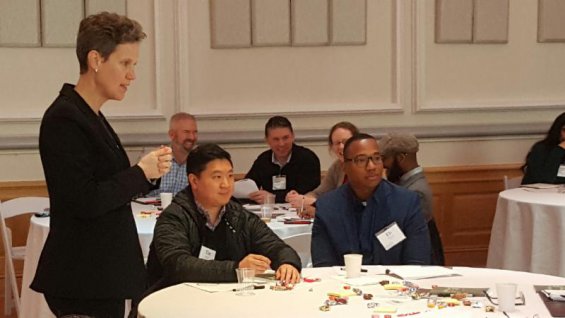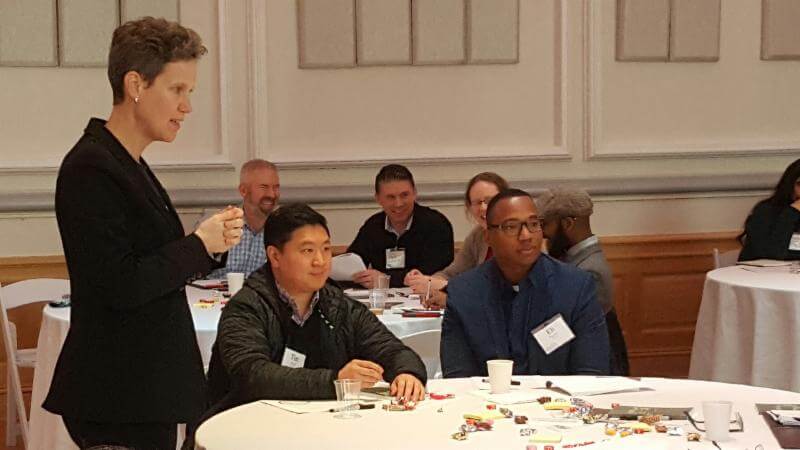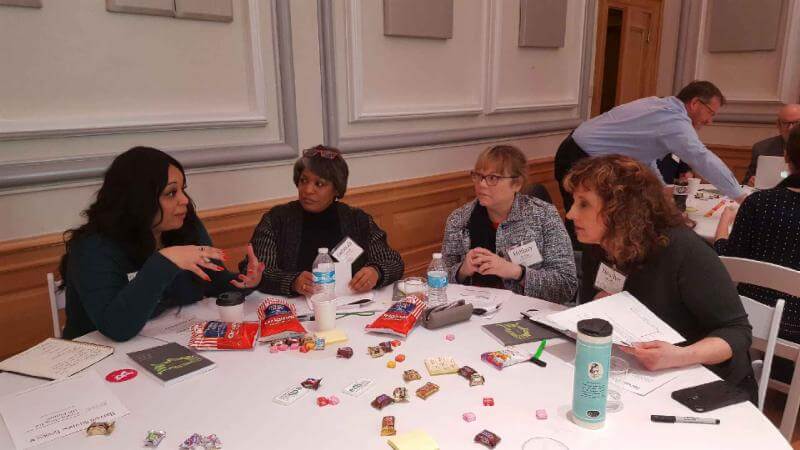April 8, 2019


 Back
Back
No drill instructors at our boot camp

Futures Boot Camp: A workout for what’s ahead
No drill instructor’s squats or burpees were required, but attendees at the Futures Boot Camp got a great workout around setting their sights on what’s ahead.
On the eve of the EDB Annual Meeting, Rebecca Ryan offered an interactive bonus session to table hosts and sponsors. Around 50 futurists representing a wide swath of sectors came with lots of questions and big ideas.
“In public transportation, how will different mobility options work?” “How do we bring all the data together to create a healthy future?” “What will the Amazon effect mean for retail in the future?” “With technology changing our industry, are we nimble enough to get people the services they want?” “In higher education, are we producing the right kind of products for this region’s economy?”
Out with the old

Ryan explained that most planning for the future is done by relying on old data. “It’s like driving across country while you’re looking in the rear-view mirror,” she said. “Most of our planning has a bias to the past. We need to have a bias toward the future.”
Ryan shared the six-step process of “strategic foresight:”
- Determine which domain to explore
- Scan for forces and trends
- Forecast plausible scenarios for your domain’s future
- Identify crossover issues that emerge in your scenarios
- Envision the future you prefer
- Backcast by creating milestones and strategies to achieve your vision
- Finally, implement
Using strategic foresight to see a project to fruition doesn’t happen in a couple hours, so the group focused on steps 1 and 2. Teams selected domains with a projected lookout of 10-20 years, such as the future of brick and mortar bank branches by 2035; the future of money movement by 2030; and the future of poverty by 2030.
A good deal of “camp” time was devoted to The Big Sort, an exercise in slowing down. Teams discussed and debated which forces and trends will have the most impact on their domain’s future. Using data to drive the conversation (and candy to create some creative charts), teams were able to determine immediate opportunities or concerns for their domain now and in the future.

The exercise offered a glimpse into the futurist realm, and it wasn’t all fun and games. EDB Board Chair Jason Whalen, attorney with Ledger Square Law and deputy mayor of the City of Lakewood, said, “We grappled with how to define the impact,” he said.
Scott Jones, senior vice president and division manager of Newland Communities, noted, “Although we were focused on one topic, we realized how many variables affect it.”
“We’re all capable of being futurists,” Ryan told the campers. “We’re capable of having the discussions. Don’t be afraid of the future.”